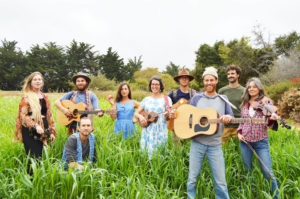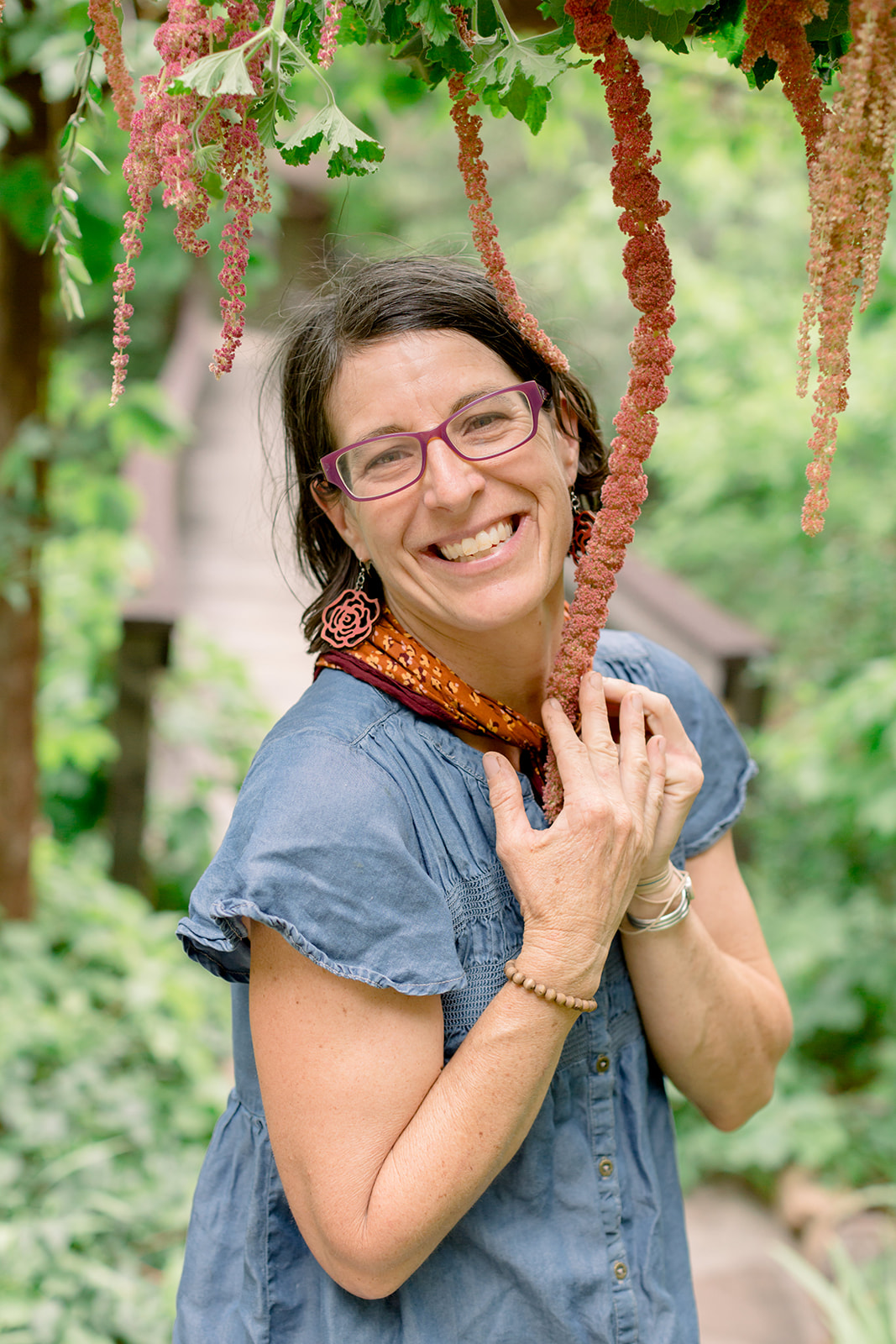 I left Flagstaff last year on a windy spring day in April. I was going to be an apprentice at the University of California Santa Cruz Farm and Garden to learn how to be an organic farmer. As I drove west on I-40 my heart was swelling with emotion. This dream was planted 15 years ago and now I was on my way. But I was also leaving everything I knew and loved and had no idea what the outcome would be. I was worried about finding people who I could sing with. I had recently accepted the fact that music was the center of my existence (plants already figured prominently). I literally needed to sing to survive; my happiness depended on it. My acceptance of this truth had led me to glorious places with other people who also had taken this oath. We sang in the Grand Canyon and in living rooms, on the streets, in backyards and on stages all over Flag together. Music made me feel at home in the world.
I left Flagstaff last year on a windy spring day in April. I was going to be an apprentice at the University of California Santa Cruz Farm and Garden to learn how to be an organic farmer. As I drove west on I-40 my heart was swelling with emotion. This dream was planted 15 years ago and now I was on my way. But I was also leaving everything I knew and loved and had no idea what the outcome would be. I was worried about finding people who I could sing with. I had recently accepted the fact that music was the center of my existence (plants already figured prominently). I literally needed to sing to survive; my happiness depended on it. My acceptance of this truth had led me to glorious places with other people who also had taken this oath. We sang in the Grand Canyon and in living rooms, on the streets, in backyards and on stages all over Flag together. Music made me feel at home in the world.
I had played with a band called the Mudflap Girls during two pivotal times in my recent life history. It was cathartic to sing songs that had meaning to us and then share them with anyone who would listen. When our group disbanded due in part to the fact that I was moving to California, I was heartsick with the feeling that a piece of me had gone missing. Soon after that breakup and only months before my departure, I unexpectedly fell in love with a handsome, guitar-playing man and our blossoming relationship was full of great songs and harmony. How could I leave that?
Crazy as it seemed, I packed my tambourine, my harmonicas and stringed instruments and started an unwritten chapter, wondering how I would find the music.
Singing in front of other people at one time was the thing I feared most in the world. But I was starting to learn that doing anything you love takes courage. I had been singing informally and happily my whole life, yet I was still not a confident musician. I equated performing with professionals who were flawless and possessed impeccable, innate talent. Since I was far from this, I adopted the belief that I was not worthy of performing. Thankfully, many of the musicians I admired helped me turn that around. Now, every time I feel the butterflies fluttering in my stomach when I play, I remember that I am giving everyone else (no matter what level) permission to sing their heart out.
On the first day of farm school, 40 new apprentices moved our belongings into a collection of small yurts with garden carts. I took inventory: three guitars and two banjos. This was promising. One of the first evenings I approached those with instruments and we formed a song circle on the Farm Center porch. There was Peter, who learned to harmonize with his brothers and in church choirs. Corriee had a snaky, old-timey voice and a flailing banjo strum to match it. Steve was shy and sang softly, but he also was a great drummer. I could see others taking interest—latent talent I suspected. As we turned over soil in the garden, the singers started surfacing like fat earthworms. There was Nick who channeled pop divas and Katrina who could belt like a Broadway star, and pretty soon we were arranging three- and four-part harmonies. When Steve placed his beater guitar on permanent loan in the Farm Center, it was an invitation to anyone else who wanted to play. Musicians started popping up everywhere like weeds and music became the center of our community life.
Within a week we were writing our first song about a rusty old farm bicycle that Andy, the handyman, used to get between fields and tractors. Music anchored our farm community life. We sang old work songs through harvest morning mist, we squeezed in John Denver at lunch, and we perfected our harmonies in the propagation house as we transplanted seedlings. We sang “Amazing Grace” and “Down by the Riverside” in a fieldside service to mourn the lives lost in the Charleston church shootings. The day my longtime friend—who was a second mother to me—passed away after a long struggle with Parkinson’s disease, we sang her soul free with “I’ll Fly Away.”
The subject matter we were studying was full of metaphors ripe for the picking. Our orchard instructor, Orin, regularly read poetry to begin a teaching session. He compared pruning trees to jazz and gospel music because of the call and response between you and the tree. Peter and I vowed to use his phrase “alleys of light,” which described what you were hoping to create by thinning a fruit tree canopy in a song. We wrote lyrics between pruning sessions in the orchard about the loss of our marriages and the memories contained in Northeastern orchards of our youth. “What will you leave? What will you keep? What will take root? What will bear fruit?” We performed it for Orin in the orchard at the end of the season with ripe apples hanging from the trees and he was touched.
It turned out everyone had a song to sing and soon we were a nine-piece band, including Jim, our tractor and irrigation instructor, who sat in after his classes on banjo; and Jan, another administrator, on fiddle. We had requests to perform for a farm-to-fork dinner that would be a fundraiser for the apprenticeship program and the harvest festival as well as our own graduation. We struggled to find a name for our farm band that could describe our eclectic voices. We liked the ring of “The Heartmakers”—because if there was one thing we had it was heart. Our music even sparked two love affairs between members (almost half the band!) that blossomed through harmonies.
By default our playlist became the soundtrack for our summer of living, learning and working together and etched even more deeply into my DNA that life, music and now farming are inextricably linked.

